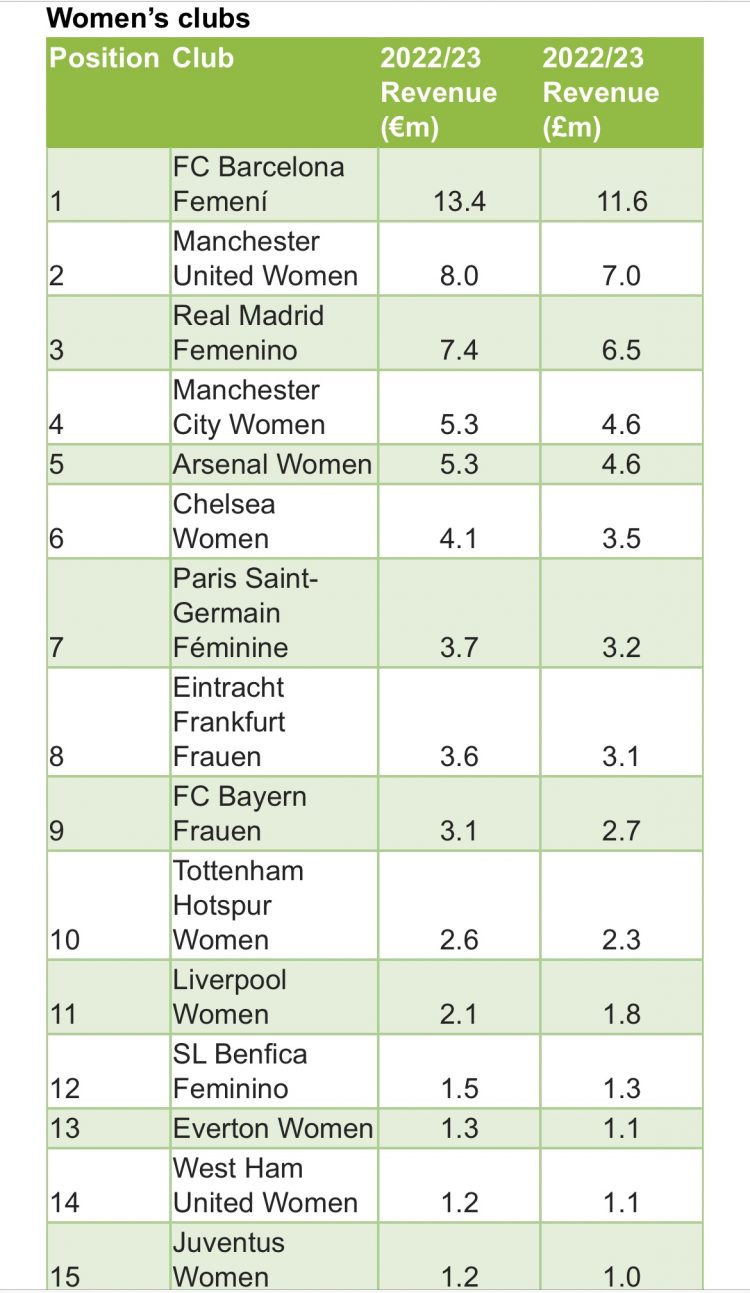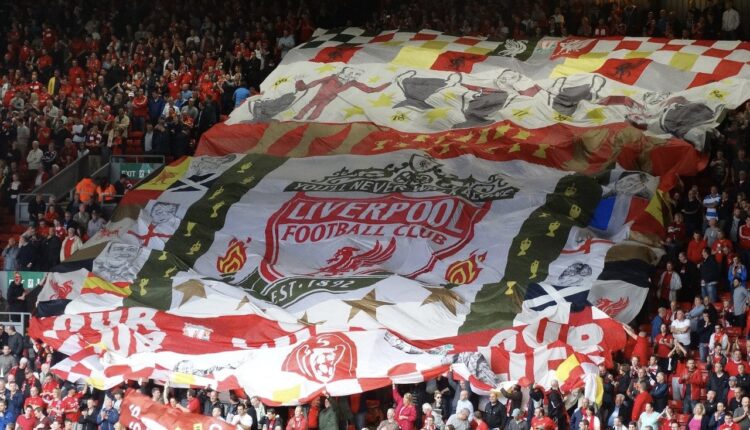Liverpool FC may be riding high at the top of the Premier League but the club has fallen down a few places in the Deloitte Football Money League. Tony McDonough reports
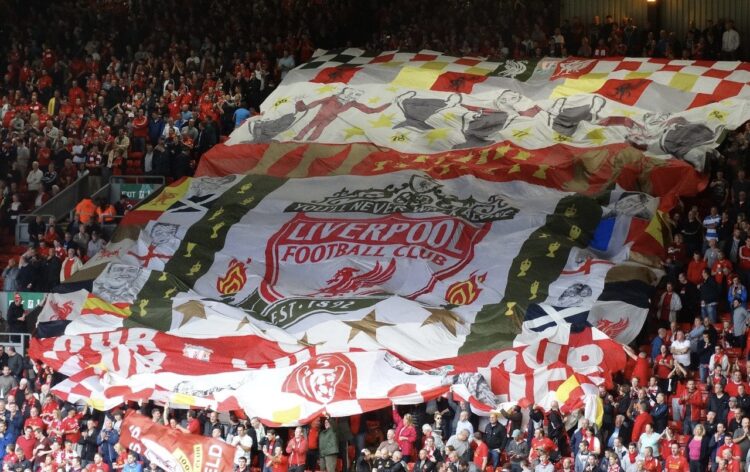
Liverpool FC is the biggest faller in the Euro money league table, it is revealed today.
Although the club is riding high at the top of the Premier League, and is competing for four trophies, it has dropped five places from last year in the Deloitte Football Money League, published on Thursday. It looks at matchday and commercial revenues.
Although Liverpool FC has yet to publish its financial results for the 2022/23 financial year, Deloitte reveals revenues for last season of €683m (all Deloitte’s figures are expressed in euros). This is down from €701.8m in the season before.
Deloitte put the fall down to an uncharacteristically poor season from the Reds who faltered in the Premier League and failed to make it into the Champions League places.
On Friday, Liverpool manager Jürgen Klopp shocked Reds fans and the entire football world when he announced he would quit at the end of the season. Liverpool FC owner Fenway Sports Group (FSG) insisted it would be “business as usual” at the club in the run -up to Klopp’s departure.
Liverpool were one of three Money League clubs (alongside Atlético de Madrid and West Ham United) to report a decline in revenue.
Top of the league for matchday and commercial revenues is Real Madrid record revenues of €831m, an increase of €118m over the last year. Liverpool’s big English rival Manchester City sit second on €826m. Manchester United are fifth on €745.8m.
This 27th edition of the Deloitte Football Money League reveals the 20 highest revenue generating football clubs globally for the 2022/23 season. They cumulatively reported record revenues of €10.5bn, an increase of 14% compared to the €9.2bn in 2021/22.
Revenue growth in the 2022/23 season was driven by record matchday and commercial revenues (€1.9bn and €4.4bn respectively), with commercial overtaking broadcast revenues.
Commercial revenue represented the largest income stream for Money League clubs for the first time since the 2015/16 season (excluding the COVID-19 impacted 2019/20 season).
Notably, 17 of the top 20 clubs reported a year-on-year increase in commercial revenue, with growth largely attributable to improved retail sales, revenue from non-matchday events and recovery of sponsorship income which had been impacted by the pandemic.
In contrast, broadcast revenues reported by Money League clubs increased by a modest 5%, with growth limited, in part, by the 2022/23 season falling within existing domestic broadcast cycles.
Overall, Money League clubs reported an average revenue of more than €500m, with commercial and broadcast revenue contributing similar amounts of €222m (42%) and €213m (40%) respectively, followed by matchday revenue (€92m, 18%).
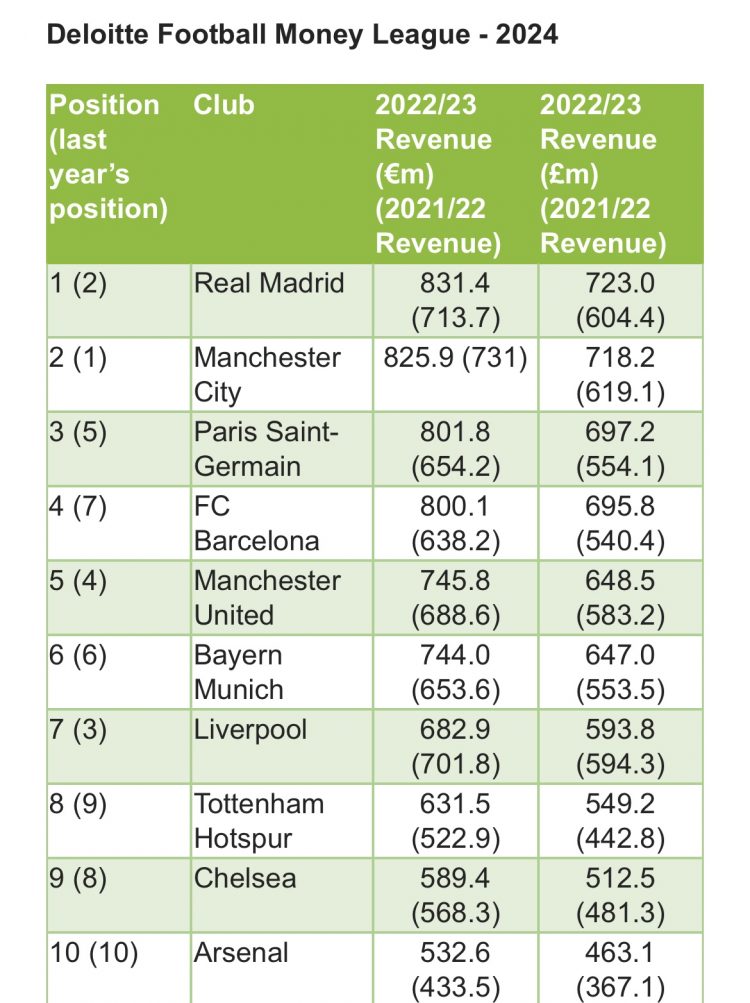
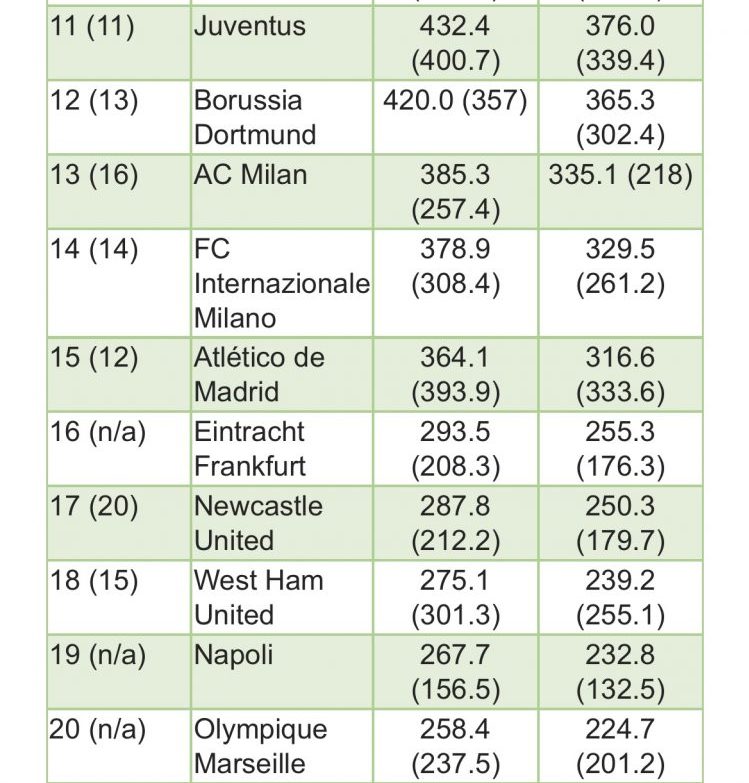
Tim Bridge, lead partner in Deloitte’s sports business group, said: “Another record-breaking year for Money League clubs represents the ongoing financial might of the football industry.
“A high demand for live sport is pointing towards further growth for commercial and matchday revenues, in particular.
“As clubs appear to no longer be able to rely on exponential broadcast revenue growth, creating a more commercially focused business model will support them to achieve greater control over their financial stability.
“This may include developing new merchandise, or non-match day events such as concerts to create new commercial offerings.”
FC Barcelona Femení remained at the summit of women’s football in Europe, with the club reporting €13.4m in revenue for the 2022/23 season – a year-on-year increase of 74%. Liverpool FC Women sit in 11th place with revenues of €2.1m.
Of the 15 women’s clubs included in Deloitte’s analysis, the average revenue stood at €4.3m, a 61% increase over their 2021/22 average (€2.6m).Within this, commercial revenue accounted for 58% of the 14 clubs’ total revenue, followed by matchday 22% and broadcast 20%.
READ MORE: Tranmere Rovers launches search for new investors
READ MORE: Everton FC sets date for new stadium kick-off
However, the findings highlight that there is significant diversity in the way that clubs generate revenue, even within the same league. Manchester United Women for instance generated 74% of its revenue through commercial partnerships, while Arsenal Women earned 58% of its revenue from matchday income.
Amy Clarke, women’s sport lead in Deloitte’s Sports Business Group, added: “Women’s football is beginning to tell the tale of growth, but that growth is not confined by a single business model. Each club is exploring its own unique way to maximise revenues within the current structure of the game.”
